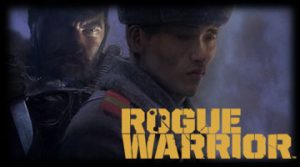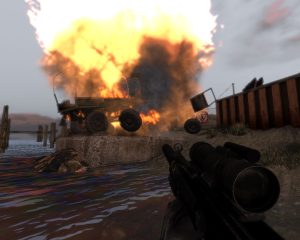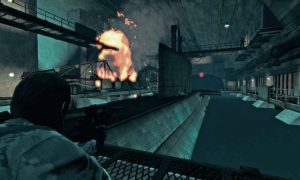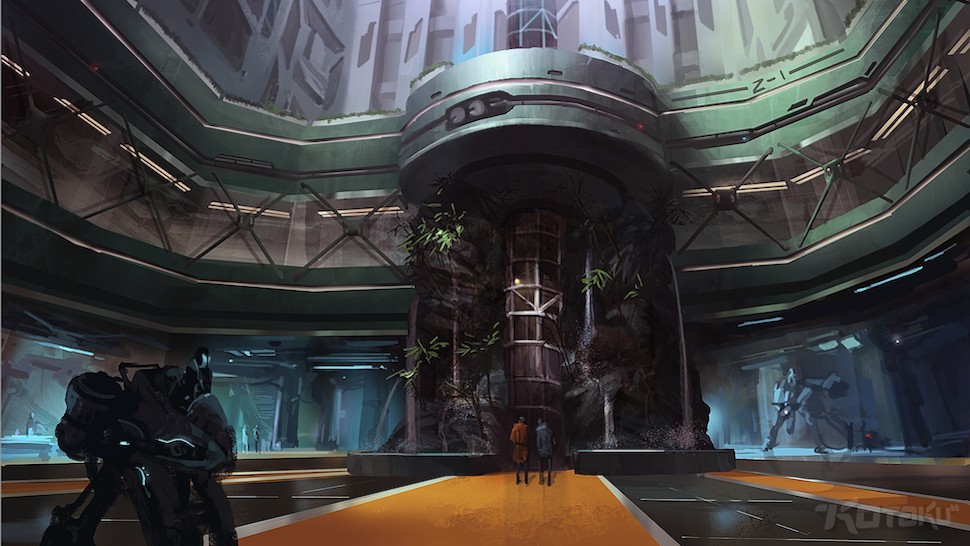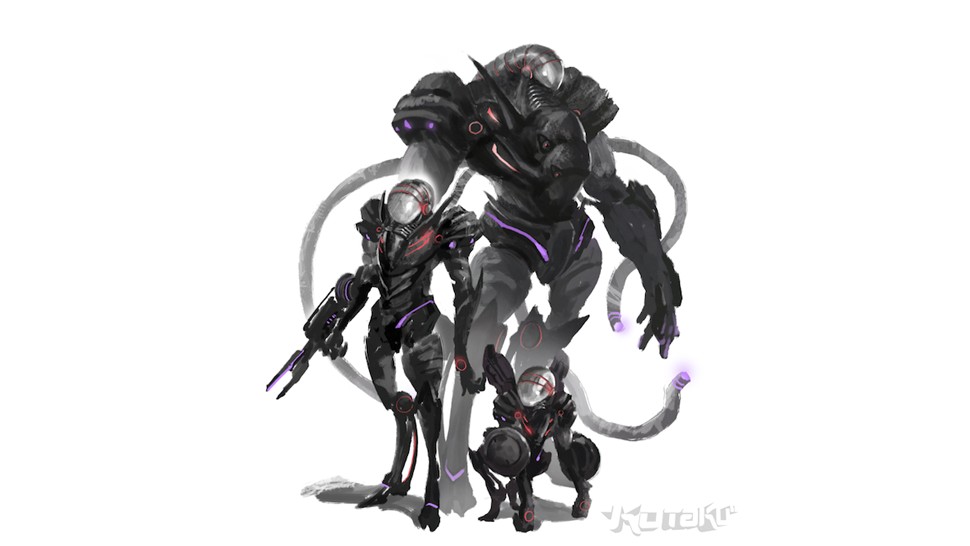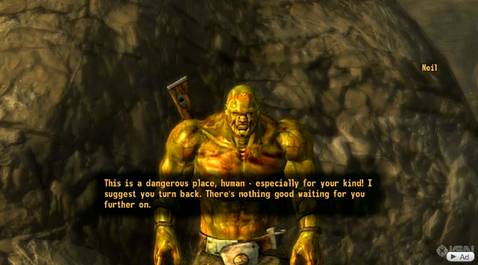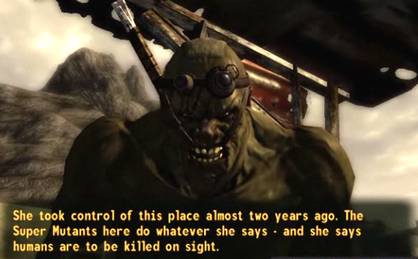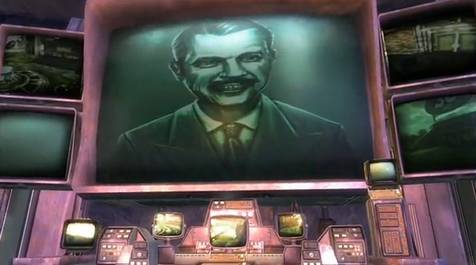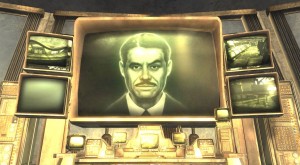Rogue Warrior is a First-Person Shooter published by Bethesda Softworks and developed by Core Design (also known as Rebellion UK Derby, a subsidiary of Rebellion Developments), released on PC, Xbox 360 and Playstation 3 in 2009. The game take place in 1986 during the Cold War, in which Richard Marcinko, a Navy SEAL, is sent on a mission into North Korea to disrupt ballistic missile launchers.
But before being released as such, the game was known as Rogue Warrior: Black Razor and was totally different from the final product following a rather disastrous development. Initially made by Zombie Studios, from 2005 until, at least, the first quarter of 2008, this title, planned by the time for a release around 2007-2008, already on PC, Xbox 360 and Playstation 3, took the form of a squad-based tactical First-Person Shooter/Third-Person Shooter, somewhat similar to the Tom Clancy’s Ghost Recon franchise, set in present day North Korea, in which we played a team of four Navy SEALs, led by Richard Marcinko, attempting to infiltrate a submarine facility to get intelligence data on the country’s nuclear capabilities. Then, as a war between north and south is about to occur, escaping and navigating through enemy territory.
Using the Unreal Engine 3 (instead, in the end, Rebellion’s proprietary engine Asura), the team insisted a lot on the various possibilities of gameplay, whether it was the non-linearity of the level design, allowing to be able to play stealth or more run and gun, or to accomplish the different objectives in any order, as well as an emphasis on the online mode, whether doing the campaign in coop or the multiplayer mode allowing you to create different combinations of maps. Following its announcement in the end of the 2006 year, numerous media had the opportunity to see the game run. Thus, Gamespot wrote:
(…) The design team at Zombie felt that the “rails” approach favored in those games (so called because you’re basically restricted to a single path) doesn’t really capture the essence of SEAL combat. SEALs are the Navy’s elite commando units, and they’re usually dispatched in small teams to operate behind enemy lines and to capture this element of SEAL warfare Rogue Warrior will have fairly large levels for a first-person shooter. The idea is that you’ll be able to approach tactical situations in the manner that you determine.
For instance, in the example that we were shown, Marcinko’s SEAL team approached a North Korean ship-breaking yard. In this situation, there were three paths that the team could follow, each with its own advantages and disadvantages. One path might be more direct, but it also increases the odds of detection, while a safer option might offer a more roundabout path that takes longer to navigate. The idea is that you can tailor your tactics to fit your situation. The levels are big, but not gigantic, designed for tactical flexibility.
During your adventures behind enemy lines, you’ll encounter a wide variety of environments and foes. In the beginning, you’ll battle North Korean conscripts, but as you progress closer and closer to the front lines of the battlefield, you’ll encounter elite North Korean Special Forces, basically the equivalent of the SEAL team. These enemies promise to be intelligent. For instance, the bad guys will actually talk to each other on the radio, and that means if you neutralize a guard and his buddies start asking for him over the radio, you’re in trouble because they’re going to investigate why he disappeared.
The game is also going to be fairly flexible in how you play it. You can switch between first- or third-person views, depending on your preference. And you can also play the game as a team tactics game, where you give simple, context-sensitive commands to your teammates (for example, you can tell one to sneak up on a guard and knife him), or you can play it as more of a run-and-gun-style action game, where your teammates just follow you wherever you go. The really cool thing about the team mechanics is that the campaign supports cooperative gameplay, whereby other players can jump in and take over any of the other three slots in your team. And if anyone drops out, the AI will take over, so you don’t miss a beat.
As cool as this new cooperative mode sounds, the new tiling system for the competitive multiplayer is even more interesting. The developers explained that one of the problems with online action games is that the levels never change. Rogue Warrior addresses this by separating the map into three sections that can be mixed and matched to create hundreds of different maps. Up to 24 players, each side can select a map tile that it wants for its side of the map, while the middle tile is determined by the server. So if one side likes to snipe, it can choose a tile with long fields of fire for its section, but the other side can counter this by choosing a built-up tile for its section, thus negating the sniper’s fields of fire. The middle section is a bit of the wild card, as the server can randomly select it. Put it together, and you never know quite how each map will play out.
And CVG, for its part, told us:
“We wanted to do some different things in the tactical shooter space than what’s already being done. We wanted to do something more openended and less constrained,” explains Pete Hines as a vivid level swells onto the monitor, revealing a North Korean ship-breaker’s yard teeming with detail and enemy patrols.
It’s one of the campaign’s earliest levels, a recreation of the start of Richard and his team’s marathon undercover journey to get back across the border to safety after they’ve been stranded in North Korea at the start of the North/South conflict.
“We wanted to base the game on a licence that would give the game a sense of authenticity, so the things that you see are as realistic as possible,” explains Hines as Zombie producer Mark Long pans around the level. On the screen, Marcinko’s digital twin and three Spec Ops sidekicks stand knee-deep in water that looks so convincing, I’m already stripped off to my pants and inflating my arm bands: an urge quickly suppressed when Long lets off a burst from his silenced MP4 into the water. The bullets kick up spray and steam rises from the superheated silencer. “We’re also working with Richard to make sure that the weapons and equipment look and feel authentic,” continues Hines as Long leads his team out of the water towards a North Korean truck parked nearby.
In a further attempt to make Rogue Warrior look and feel as authentic as possible, Zombie are not only carefully recreating Marcinko’s exploits, but are also taking pains to ensure that the freeform battlefield you inhabit reacts as realistically as possible.
Whereas many shooters still utilise a simple vehicle damage model, Rogue Warrior’s regional approach to inflicting damage is set to infuse the game with a genuine sense of believability.
“We’ve created a destructible system that’s really interactive,” enthuses Long. “If you shoot a truck’s gas tank, it’s going to explode. If you shoot the bumper it won’t really do any damage. But if you shoot the engine enough, it’ll set alight and the fire will spread, eventually reaching the gas tank.”
Eager to prove his point, he lets off a flurry of bullets, which hammer into the truck’s front bumper causing it to shake until it falls to the ground with a clang. Moving his sights to the engine, Long lets rip again, this time igniting a small flame that licks hungrily at the truck, slowly devouring it until it reaches the petrol tank. Seconds later, the truck is blown into a thousand molten shards.
Visuals aside, perhaps Rogue Warrior’s most impressive attribute is its attempt to meld run-and-gun gameplay with open-ended squad-based combat, theoretically allowing you to approach each level as aggressively or as stealthily (or indeed, as tactically) as your cold heart desires.
“We wanted to go with something that was a departure from the genre’s current nondescript, over-stylised direction,” explains Long as he moves his team towards a cluster of nearby North Korean patrolmen with a single mouse click.
With the option to command each individual team member (each of which has the same set of abilities that you have), or to issue orders to your entire team, Rogue Warrior’s gameplay is looking flexible, clearly leaning towards the more open-ended approach adopted by the likes of Splinter Cell: Double Agent than more conventional, linear shooters.
But there’s little time for contemplation right now as Long’s eager to showcase both of these playing styles. First, he chooses a tactical, stealthy approach to the conundrum of taking out the guards. Leaving the rest of his squad behind cover, he slowly flanks a lone guard before slashing his throat.
Next he cycles through his collection of booby traps – remote, time and pressure bombs -and plants one on his victim’s uniformed corpse. The dead man’s radio crackles briefly as one of his fellow guards checks in on his status, but the enquiry is met by silence.
Alerted by their comrade’s lack of response, three nearby guards rush to check on him, kneeling low in apparent concern as they search for a pulse. Big mistake. Grasping the remote detonator switch, Long takes out all three men with a single press of a button without having to fire a single shot.
“This is a system that we’re calling ‘Lure Behaviour’,” beams Long. “Guards communicate with each other via radio and they’re going to be checking on each other so they’ll know if something bad has happened to someone on patrol. You can also place a booby trap on an alarm in order to take out any enemies that try to activate it.”
With the presentation coming to a close, it’s clear that Long is determined to go out with a bang by showcasing the game’s all-out action features. Selecting one of the many routes through the level, he leads his team towards a group of gargantuan rusting hulls, surrounded by pockets of enemies.
“There are a lot of different routes that you and your team can take through the levels,” says Long as he waits for a pair of North Korean soldiers to pass his hiding place. “The Artificial Intelligence is integral to this setup. It’s designed to react to you and your team regardless of where you are on the map. The A.I.’s communicate to each other, call for alarms and reinforcements, see you and hear you. Sometimes they’ll fight you, sometimes flank you, other times they might flee and regroup.”
As the ship-breaker’s yard is engulfed in a hail of lead, Long sends two of his men to flank the enemy soldiers, who instantly seek out cover. Short bursts of gunfire are exchanged, as each side preserves its limited supply of ammo. Enemies duck out from their hiding places, before diving back, but they’re soon overpowered with a few wellplaced grenades and a cunning flanking manoeuvre that they never see coming.
“We’re trying to give you a tactical shooter with tons of potential to play the way you want to play and we’re going to throw tons of curve-balls at you along the way,” says Long as the end of level cut-scene kicks in. In it, Marcinko and his team are left contemplating their predicament as the sheer extent of their task is revealed – the camera panning for miles over the North Korean countryside, over countless battlefields, all the way to the South Korean border and safety.
However, after its presentation, Rogue Warrior: Black Razor felt into obscurity and was briefly mentionned in the beginning of 2007. In 2008, Pete Hines told FiringSquad that the game was still in development without much more information, and on spring 2009, Big Download wrote:
Big Download contacted Bethesda Softworks’ PR head Pete Hines who told us that a status report on Rogue Warrior will be made “in the next month or so.”
Currently up in the air is whether or not the game’s originally announced developer Zombie Studios is still working on the game
Few days later, Bethesda revealed the new version of the project, simply known as Rogue Warrior, with Rebellion Developments (Core Design, in fact) in charge. While interrogating by Shacknews about what happened during all those years, Pete Hines simply answered:
“Suffice it to say, we were not happy with what the direction of that project was. (…) We felt it needed a change in scope and a change in focus. And we felt that that was the focus that it needed. That the sort of squad-based, tactical–in a sense I guess it was turning into a bit of a Navy SEAL game, and it was less of a Richard Marcinko game.”
Without really knowing what was the development time for this new version, it should be noted that Core Design had just released Shellshock 2: Blood Trails in February 2009, less than 10 months before the release of Rogue Warrior. Unsurprisingly, Rogue Warrior was met with extremely negative reviews by the press, appeared to be one of the worst game ever made for the Xbox 360/Playstation 3 generation and was the last game of Core Design, which will close permanently on March 17, 2010.
Oddly enough, it wasn’t the first game based on Richard Marcinko’s exploits to be created. Around 1998-1999, Yosemite Entertainment had also a similar game, named Navy SEALs, which was cancelled with the closure of the studio.
Images:

